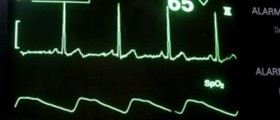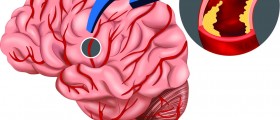Vasovagal syncope is the leading cause of fainting. Vasovagal syncope represents loss of consciousness due to sudden decrease in heart rate and blood pressure, because of which less blood reaches the brain. Vasovagal syncope results from the body’s overreaction to triggers such as the sight of blood, an injury, blood loss or tremendous emotional stress.
Vasovagal syncope is not a serious condition and does not need to be treated. Still, doctors may conduct tests to determine whether fainting is caused by a serious medical condition such as a heart disorder.
Symptoms of Vasovagal Syncope
There are several common symptoms that individuals display before fainting occurs due to vasovagal syncope. A person feels lightheaded and his or her skin becomes pale. The person experiences feeling of warmth accompanied with a cold, clammy sweat. Vision becomes constricted (tunnel vision) and fades to black. Ringing in ears and weakness are present too. Causes of Vasovagal Syncope
Vasovagal syncope is caused by malfunctioning of the part of the nervous system that controls heart rate and blood pressure. As the heart rate slows, surrounding veins and arteries dilate. This causes blood pressure to drop very low as blood settles in legs. Both decrease in heart rate and drop in blood pressure cause lack of blood supply to the brain resulting in fainting.
Vasovagal syncope can be seen in individuals of any age. It is usually triggered by standing or upright sitting for long periods of time. Standing up abruptly can also cause blacking out. Exposure to high temperature can cause fainting too. The sight of blood, blood testing, witnessing an accident on the street and a sudden onset of extreme emotions can lead to fainting. Vasovagal syncope can be brought on by fear of bodily injury and straining such as to have a bowel movement. Finally, lack of sleep, dehydration, fasting and use of drugs that lower blood pressure can cause fainting too.
Diagnosis of Vasovagal Syncope
Apart from mentioned triggers, fainting can be caused by many health conditions such as brain disorders or heart problems. To rule out underlying medical problem, doctor will ask a patient about the symptoms and perform physical exam to measure heart rate and blood pressure. Also, the doctor will use tilt table testing to reproduce a fainting episode. Prevention of Vasovagal Syncope
If you feel faint you should lie down and lift your legs above the heart level. This way blood flow to the brain will be restored. Alternatively, you can sit down with your head between the legs until you recover.

















Your thoughts on this
Loading...